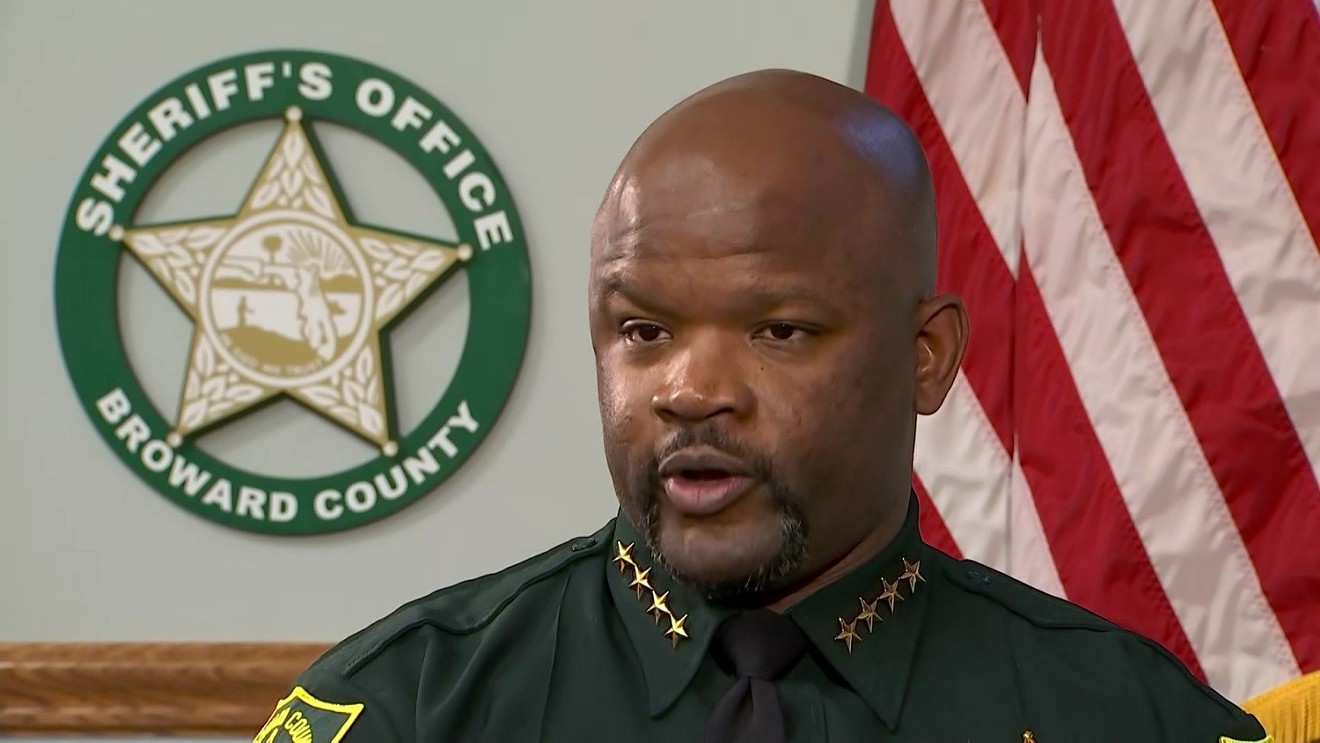While all eyes are on the national protests against police brutality, locally there is a fight for the future of policing and prosecution in Broward County.
Broward's top prosecutor, Michael Satz, and its chief public defender, Howard Finkelstein — who have shaped the county's courts for years now — are both stepping down after decades in office. Sheriff Gregory Tony, who was appointed by Florida Gov. Ron DeSantis after former Sheriff Scott Israel was ousted in the aftermath of the Parkland massacre, is also fighting to keep his post.
The ACLU has spoken out about the importance of Broward's local elections, particularly in light of the protests against the killing of George Floyd in Minneapolis. Because Broward County leans heavily Democratic, the most important votes will be those cast in the impending August 18th primary election.
The race for Broward sheriff couldn't be happening at a more significant time. Israel is running for reelection, while Tony is dealing with the recent revelation that he shot and killed 18-year-old Hector "Chino" Rodriguez in Philadelphia when he was just 14, an incident he never disclosed when he joined the Coral Springs Police Department in October of 2005. Tony also did not disclose that he used LSD when he was 16.
Since Tony took over as Broward's top cop, he's taken aggressive action to discipline deputies who have mistreated citizens, something that voters during the nation's most widespread protests since the 1960s might seriously consider, despite the incidents of his youth. Tony also got a $500,000 boost to his campaign by financier S. Donald Sussman, who was the largest donor to Hillary Clinton in her 2016 run for president.
Although Broward is considered one of the most liberal counties in Florida, there are still racial disparities within its legal system. The Sun-Sentinel editorial board in 2016 highlighted findings in the Sarasota Herald-Tribune's "Bias on the Bench" project showing that black defendants charged with felony drug possession in Broward County received sentences that were 65 percent longer than the sentences of white defendants.
Satz, who has served as Broward state attorney since 1976, has somewhat softened his tough-on-crime stance over the years. As criminal justice reform became more mainstream, his office began promoting more progressive diversion programs, hosting public workshops on sealing and expunging records for minor arrests, and publicly supporting civil citations.
Broward now has several progressive-leaning candidates running to replace Satz. Joshua Rydell, a former Coconut Creek commissioner, has already received endorsements and donations from prominent groups in the county, including the Broward County Police Benevolent Association.
Attorney Joe Kimok, meanwhile, is running on far and away the most progressive platform this cycle. He recently landed an endorsement from Howard Dean's Democracy for America, according to Florida Politics.
Rydell and Kimok are aligned on several prominent issues, including ending cash bail, racial disparities in sentencing, and mass incarceration. The field for the state attorney's race also includes five former assistant state attorneys, including Teresa Williams, who ran against Satz in 2016.
The public defender election, often overlooked by the public, plays another pivotal role, protecting Broward citizens against unfair or overzealous prosecutions. Finkelstein, who was elected as the county's top public defender in 2004, has in recent years criticized the state attorney's office for what he deems institutionalized racism. He feels the post should be helmed by someone from a younger generation who will govern with sensitivity to issues of race.
"It's a new Broward — a new generation that is different from me," Finkelstein, who is 65, told the Broward Beat blog. "We need somebody younger. Most of the lawyers in this office are younger than my children."
Finkelstein has endorsed his chief assistant public defender, Gordon Weekes, in the upcoming August election. Weekes made the news recently, along with several defense attorneys, when he demanded formal reviews on cases worked on by Nadra Nash-Montgomery, a toxicologist at the Broward Medical Examiner's Office who was caught falsifying data. Although there is a debate over whether the errors were accidental, Weekes says the results raise doubts about the office's integrity.
"If you're gonna make a mistake and then try to cover it up as if no mistake had ever occurred, that calls into question whether you can be believed or not," Weekes told CBS Miami.
Although Weekes might have the endorsement of his boss and a more youthful and progressive vision for the public defender's office, he has a fight coming from Tom Lynch, a former circuit judge who got his start as a public defender. Lynch has been endorsed by the Broward Police Benevolent Association and Broward AFL-CIO.
[
{
"name": "GPT - Billboard - Slot Inline - Content - Labeled - No Desktop",
"component": "16971022",
"insertPoint": "2",
"requiredCountToDisplay": "2"
},{
"name": "Editor Picks",
"component": "15769925",
"insertPoint": "4",
"requiredCountToDisplay": "1"
},{
"name": "Inline Links",
"component": "16575154",
"insertPoint": "8th",
"startingPoint": 8,
"requiredCountToDisplay": "7",
"maxInsertions": 25
},{
"name": "GPT - Rectangle 2x - Slot Auto-select - Labeled",
"component": "15782206",
"insertPoint": "8th",
"startingPoint": 8,
"requiredCountToDisplay": "7",
"maxInsertions": 25
},{
"name": "Inline Links",
"component": "16575154",
"insertPoint": "8th",
"startingPoint": 12,
"requiredCountToDisplay": "11",
"maxInsertions": 25
},{
"name": "GPT - Leaderboard to Tower - Slot Auto-select - Labeled",
"component": "15782207",
"insertPoint": "8th",
"startingPoint": 12,
"requiredCountToDisplay": "11",
"maxInsertions": 25
}
]











